#Quebec City mosque shooting
Explore tagged Tumblr posts
Text

#rest in piss tarek fatah#hey remember when he blamed victims of the 2017 Quebec City mosque shooting for being murdered by a neo-nazi?#I remember that#cdnpoli
15 notes
·
View notes
Text
A Surrey BC Conservative candidate is facing renewed pressure to drop out of the race after more offensive social media comments surfaced. But in a statement posted to social media platform X (formerly Twitter), South Surrey candidate Brent Chapman says he has no plans to withdraw. The latest comments were uncovered by CKNW radio host Jas Johal, and show Chapman appearing to question whether a number of high-profile mass shootings, including the Sandy Hook elementary school shooting, Quebec City mosque shooting and the Pulse Nightclub shooting in Orlando really happened.
Continue Reading
Tagging: @newsfromstolenland
#conservatives#conservative party#conspiracy theories#sandy hook#mass shooting tw#bc election#please vote#your vote matters#cdnpoli#canada#canadian politics#canadian news#british columbia
61 notes
·
View notes
Text
Alexandre Bissonnette edit + infopost
~~~~~~~~~~~~~~~
The edit is for you to see some photos of him!
I want to say I don't support any actions !!
My content is because I love true crime and political cases ~~
if I like the person is for him/her personality, appearance or manner. But I do not support hate crimes or murders
Event summary
Alexandre Bissonnette, 27, entered a mosque armed with a pistol and killed 6 men, injuring 19 more, one of the victims was left paraplegic for the rest of his life
Family, social life, curiosities
Bissonnette has a twin brother with whom he shared an apartment four miles from his parents' house. But Alexandre Bissonnette often slept at his parents' house on weekends.
He was Canadian, born and raised in Quebec City. He was always described as a simple and ordinary man. Bissonnette had already taken antidepressants, but it was stated that his mental state had absolutely no influence on the crime, as he was considerably stable and fully conscious.
He had a Facebook page and also a Tumblr page, where he posted about his daily life, food, etc. However, on Facebook, he made a lot of political comments. Emails from Alexandre and his father were also found that spoke negatively about Muslims. Many people believe that Alexandre received this prejudiced upbringing from home. He and his father used to practice shooting at an outdoor range and Alexandre would often hang out with old friends. However, he did not have a girlfriend, and was described as a shy and somewhat introverted man.
The father, and also Alexandre himself on social media, stated about the problems the boy had with alcohol. However, according to a blog by Bissonnette, he had stopped drinking because, according to him, it "is very bad for your health!" and he reported, with these words, that he was "very happy about it!" However, even with this abstinence from alcohol, the shooter told the authorities that he drank sake the entire day of the massacre.

Security camera footage from a depanneur shows Alexandre Bissonnette buying a drink minutes before the Quebec City mosque attack on January 29, 2017
"Throughout his life, until January 29, Alexander had never demonstrated violent behavior in words or actions toward anyone. "Alexander is the last person we, and all those who know him, could imagine doing something so out of character," Alexander's father said.
Bissonnette was a political science student at Université Laval in Quebec City. He also works and had a steady job, but was on three weeks' leave when the shooting happened. Alexandre had a history of bullying, probably because he was quiet and reserved, but this did not seem to have a direct impact on the case. In any case, he was described as an "ordinary" man.
about the bullying he suffered his father said: "Realizing that nothing was getting better, Alexandre simply stopped mentioning it to us. I can't tell you how much I regret not doing more to make sure Alexandre was safe at school."
In 2014, Bissonnette was introduced to firearms by a friend. He went on to apply for a license, falsely reporting that he had no history of mental health issues or suicidal thoughts. Over the next few years, he would legally acquire six guns.
Bissonnette told psychologists during interviews that he had always had thoughts about mass shootings. Interestingly, Alexandre was fascinated by the Columbine Massacre.
Alexandre had also thought about carrying out a massacre in a shopping mall, carrying weapons in his bag and everything, but he gave up.
ideologies and thoughts about Islamists
Alexandre was an actively political person in his speeches and discourses. He seemed to be very interested in the subject, and it was no wonder that he was studying Political Science. However, Bissonnette's political positions always leaned towards a more extreme side, related to violence. He was a nationalist, but a nationalist who preached the unity of white people only. He also supported Marine Le Pen's party in France and Donald Trump in the United States. He frequently posted on his Facebook page against immigrants, against pro-immigrant policies, against Muslims and against feminists.
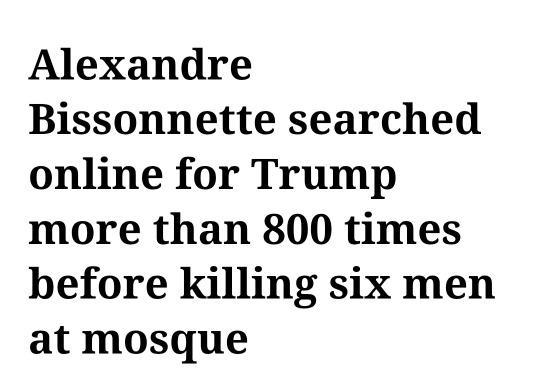
Historical context of the city and the mosque
Before talking about the massacre, it is essential to talk a little about the state of mind of the city and the mosque that suffered the attack.
Quebec City has always had questionable positions on ethnicity, immigration and Islam. The mosque has previously suffered an Islamophobic attack, in which a pig's head was placed on the mosque and a note reading "Bon appétit" in French (the local language).
The Quebec City mosque mass shooting on January 29, 2017
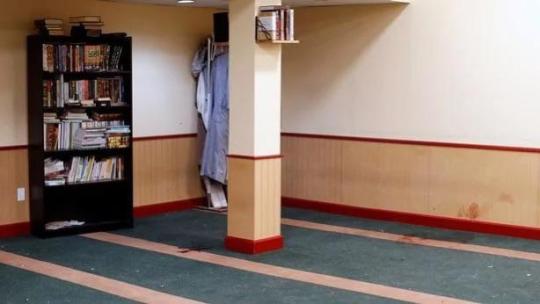
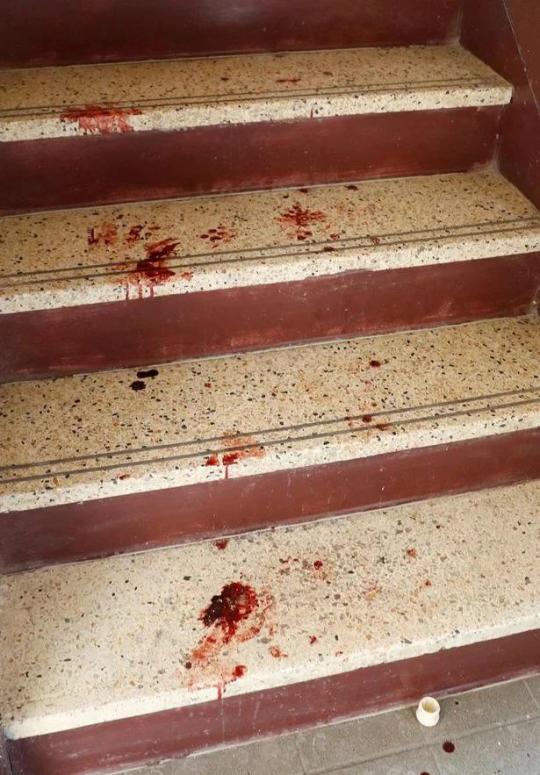
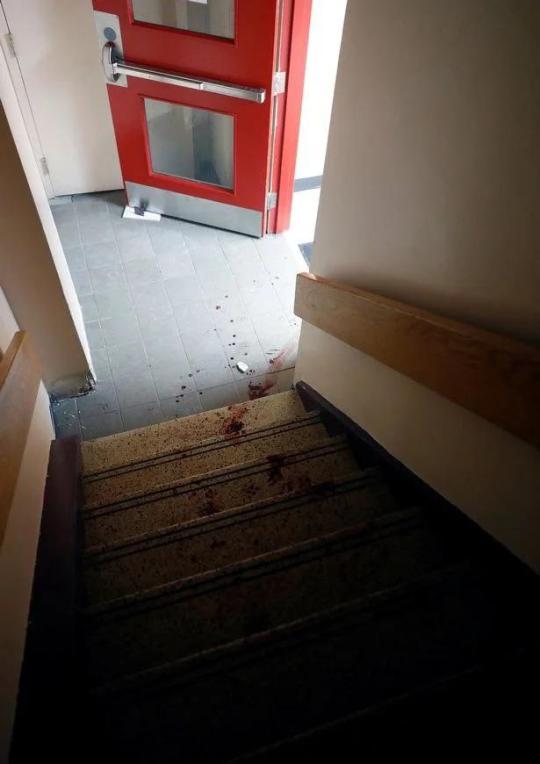
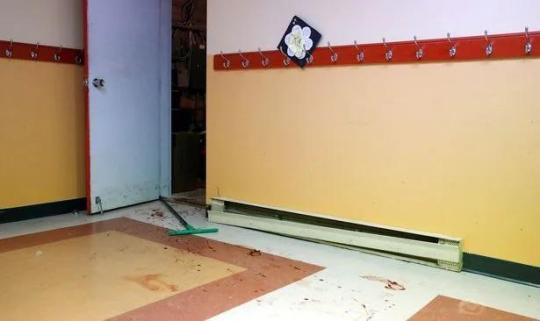
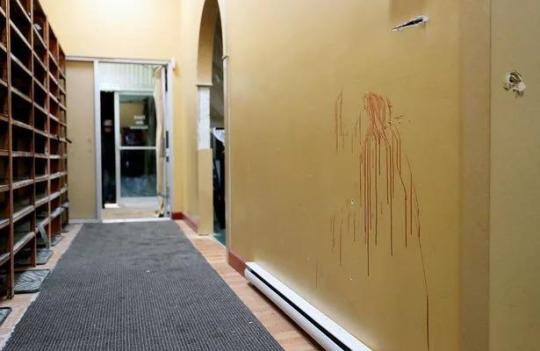

In the month leading up to the shooting, Bissonnette was on leave from his job at Héma-Québec with an anxiety disorder following an altercation with a co-worker. During this month, he obsessively visited the Twitter accounts of several right-wing media personalities, including Tucker Carlson, Laura Ingraham, David Duke, Alex Jones, Mike Cernovich, Richard B. Spencer, and Kellyanne Conway. Bissonnette checked Ben Shapiro's Twitter account 93 times in the month leading up to the shooting. He was also on leave from his university political science program. He was scheduled to return to work the day after the shooting. During his free time, he regularly visited Islamophobic websites and searched the web for information about mass shooters.
When Alexandre Bissonnette heard about Justin Trudeau’s famous tweet welcoming refugees to Canada, the frail-looking 28-year-old political science student told police he went crazy. A few hours after watching a television report suggesting that Canada would accept immigrants rejected by President Trump
On the day of the shooting, Alexandre spent the day drinking and finishing his research on mass murders, immigration and Islamic terrorism, including checking news reports on crimes committed by Muslims in the country. That night, he went to his parents’ house for dinner and then sat in a corner, fiddling with his computer. At 7 p.m., he left the house armed with a 9 mm pistol and a Czech semi-automatic rifle of .223 caliber. He left home in his parents' car, saying he was going to practice shooting. At 7:37 p.m., he hesitated to continue shooting, so he went into a store and drank some vodka. Then, afraid of being seen carrying a large weapon, he decided to return to the mosque to carry out the attack.
He arrived at the mosque around 7:53 or 7:54 p.m. Outside, there were two brothers, at whom he pointed the rifle, which failed, jamming. Alexander appeared relaxed, smiling, throwing the rifle on the ground and pulling out his pistol. He fired several shots at both of them, in the arms and abdomen, then got close and shot the brothers in the head, with the pistol pressed against them.
Two more mosque worshippers announced that there was a shooter, and chaos soon broke out. Alexandre entered the room, firing ten shots, then reloaded. Bissonnette re-entered the prayer hall. He would fire 30 shots in 30 seconds during the second wave, and would target mainly people trying to take cover.
Aymen Derbali, crouched near the gunman, attempted to distract him from the busier areas of the mosque by staggering toward him, but was shot in the knee and chin.[31] As Derbali fell and crawled on the ground, Bissonette shot him 6 more times, but Derbali would survive.[32] Bissonnette then targeted 44-year-old Aboubaker Thabti, murdering him at close range with three shots to the skull.
The gunman returned a second time to the lobby to reload his weapon, then returned to the prayer hall and killed some of the worshippers who were already wounded and others who were wounded. He then pocketed a bullet, intending to take his own life in a nearby forest, and then left the mosque at 7:57 p.m.
According to an initial report, a man who came forward as a witness said that two assailants dressed in black and with a Quebecois accent entered the mosque and shouted "Allahu Akbar" before opening fire. Police later determined that there was only one shooter, and that was Alexandre.
Later, at 8:10 p.m., Alexandre Bissonnette called emergency services (911) and turned himself in.
Alexandre Bissonnette was sentenced to life in prison for the 2017 Quebec mosque attack. He was originally scheduled to serve 40 years before being eligible for parole. However, in 2020, the Quebec Court of Appeal reduced that sentence to 25 years, ruling that 40 years without the possibility of parole constituted cruel and unusual punishment. In 2022, the Supreme Court of Canada upheld that decision, maintaining his eligibility for parole after 25 years. Therefore, Bissonnette will be eligible for parole in 2042.
Victims
The six murder victims were Ibrahima Barry (39, an IT employee for the Quebec government), Mamadou Tanou Barry (42, an accounting technician), Khaled Belkacemi (60, a professor at Laval University), Aboubaker Thabti (44, a pharmacy technician), Abdelkrim Hassane (41, a computer analyst for the Quebec government) and Azzedine Soufiane (57, a grocery store owner).
#tccblr#tcc tumblr#teeceecee#tcc fandom#tc community#tcctwt#alexandre bissonnette#tcc info#info post#mass killers
23 notes
·
View notes
Text
Canada's first-ever anti-Islamophobia tsar is facing calls to resign after an op-ed resurfaced in which she called Quebecers Islamophobic.
Amira Elghawaby was appointed last week to the new position by Prime Minister Justin Trudeau.
In 2019, she co-wrote an opinion piece attacking a Quebec law that banned public servants from wearing religious symbols, including hijabs.
Last week, after her words resurfaced, she walked back her comments.
She said her article was meant to be a criticism of the law, not Quebecers themselves.
The op-ed, which she co-wrote in 2019 with a social activist for the Ottawa Citizen newspaper, read: "Unfortunately, the majority of Quebecers appear to be swayed not by the rule of law, but by anti-Muslim sentiment."
On Wednesday, amid mounting criticism, Ms Elghawaby apologised to Bloc Québécois Leader Yves-François Blanchet, who is the head of Quebec's federal separatist party.
"I am convinced, and I know and say it, that Quebecers are not racist," Ms Elghawaby said, according to the Montreal Gazette.
"It was not my intention, and because of the injuries caused by my words, I sincerely apologise."
But her apology did not immediately quell calls for her resignation.
On Thursday, Mr Blanchet said Ms Elghawaby was "hostile to the values of Quebec" and urged Mr Trudeau to abolish the position entirely.
Mr Trudeau said he supports Ms Elghawaby "100%", while adding that he did not agree with her op-ed. "Quebecers are not racist," he said.
The prime minister has been a vocal critic of the bill, arguing it restricts people's freedom of expression and religion, but he has said the federal government will not intervene right now in the court process.
Bill 21, which came into law in Quebec in 2019, prevents judges, police officers, teachers and public servants from wearing symbols such as the kippah, turban or hijab while at work.
The law is currently being challenged in the courts.
Ms Elghawaby's appointment comes amid growing concern about Islamophobia in Canada as a whole.
In 2021, a man drove his vehicle into a Muslim family, killing four in the city of London, Ontario.
In 2017, six people were killed and eight injured in a shooting at a mosque in Quebec City.
Ms Elghawaby's appointment was heralded as a necessary step by the National Council of Canadian Muslims (NCCM).
Stephen Brown, head of the NCCM, said: "Islamophobia has been rising in recent years as mosques are consistently vandalised and Muslims are constantly harassed across the country. This cannot continue, enough is enough."
But the legislation remains popular in Quebec.
The province has a long and bitter history with the Catholic Church, which controlled many public institutions in the predominantly French-speaking Quebec for over a century.
Proponents of the bill have argued it is not anti-Muslim, but pro-secularism.
#nunyas news#can Jewish public servants wear a kippah#or do you only care when it crosses into the Muslim arena#this is a law that hit more people than Muslims#Sikh's and their turbans are out too I would guess#but you only care when it hits Muslims#i know that's your job but it takes no effort to acknowledge#the law isn't exclusive
24 notes
·
View notes
Text
When David Eby’s recent Holocaust Remembrance Day post on X went wrong, mistakenly stating, “We stand with the Muslim community throughout Canada on this sorrowful day,” the error was immediately pounced on by Andrew Reeve, press secretary for B.C. United leader, the writer of the post on X, with a scathing rebuke: “Glad to see this tweet was taken down, but who the hell drafted and approved this? Unacceptable.”
Who the hell? Well, probably someone just like Reeve—a communications staffer--is most likely not writing his own tweets. The error was serious but not fatal, in part because of the way it was handled.
Like it or not, social media has become the key component for government communications, from leadership campaigns to the highest office. Social media offers a direct avenue of communication between a politician, a government office, and the public. It’s a great tool, but not without pitfalls. Hard-copy news releases are a complete anachronism, and the days when government announcements were made in controlled environments such as a campaign bus or a carefully constructed news conference are long gone, said Geoff Meggs, who was chief of staff to former Premier John Horgan.
Managing a leader’s social media can lead to sleepless nights—think fires, floods, and pandemics expected--and they are expected to post on social media to show they are connected to issues in their local communities, including faith and cultural communities, and to respond to daily situations, such as emergencies and natural disasters.
They are consolers-in-chief, expected to respond to public pain, but they are also expected to have lighthearted moments, perhaps responding to the latest Canucks win. As said, social media is used as a straightforward communication tool to say what the government is doing.
Typically, a communications director will be one of the closest staff members to a leader, spending a lot of time with them so they can capture that person’s personality and be nearby to have them vet social media posts that either they or staff members write.
Planned social media posts that commemorate annual events, important cultural events, and religious holidays are typically carefully crafted in advance and not necessarily seen by the leader before they are posted—a possible reason the Jan. 27 Holocaust Remembrance Day post was mixed up with a planned Jan. 29 message commemorating the anniversary of the deadly shooting at a Quebec City mosque. Current events can easily go wrong, especially when the events are fraught. “From a communications perspective, the Palestinian-Israeli conflict has been a real challenge,” said Allam.
Toronto Mayor Olivia Chow got into hot water after she condemned Hamas in a tweet on Oct. 7, followed it with a tweet acknowledging Palestinian pain, then deleted both, then posted a revision, and later prompted an uproar by calling a local Palestinian protest “unsanctioned for the “messed up” messaging, blaming the limits of social media.
Allam said a good communications director will be methodical, thoughtful, calm, and committed to the values and views they and their clients represent. But there is one more thing: “You have to have nerves of steel,” said Allam.
0 notes
Text
Wednesday, February 22, 2023
Democrats, Republicans and Canadians in standoff over migrant buses (Worldcrunch) In the last few years, thousands of migrants have been bussed to Democrat-run northern cities from the Republican-run states of Texas, Arizona and Florida. But the latest news is that migrants’ journeys don’t stop there—now being moved even further north, bounced around like balls in a game of political ping-pong. Authorities in New York City have begun shuttling them up to the Canadian border. And Quebec premier François Legault is demanding New York stop the buck-passing bus rides, which he says are straining the province’s asylum system. The news this week has added to pressure from Quebec for the Canadian national government to negotiate with the U.S. and close a legal loophole that allowed almost 40,000 people to cross into Canada last year via Roxham Road, a stretch of country road in upstate New York. Last year saw record traffic at the crossing, which spans the border between northern New York State and Quebec.
Three days. 10 mass shootings. More than 50 victims. (USA Today) Nine children were shot at Georgia gas station. Six people were killed in a Mississippi town. Eleven people were shot in Memphis. Five people were injured near a parade in New Orleans. Six people were shot on a Chicago expressway. That’s just half of the reported mass shooting violence over the weekend. There were 10 mass shootings from Feb. 17 through Feb. 19—the most of any weekend so far this year, according to data from the Gun Violence Archive. There have been 82 mass shootings this year, compared to 59 at the same time last year, according to data from the publicly sourced nonprofit database.
Americans applying for controversial ‘golden passports’ more than any other nationality, report says (The Week) A new report has determined that more wealthy Americans are looking to purchase a unique status symbol—not a yacht or a private plane, but citizenship abroad via a ‘golden passport.’ Also known as ‘citizenship by investment’ programs, golden passports “allow wealthy foreigners to receive citizenship in exchange for investing a certain amount of money in a country, often by purchasing real estate,” according to Insider. There are also ‘golden visas’ that provide temporary residence instead of permanent citizenship. According to a recent wealth report by research firm Henley & Partners, 2022 saw more Americans than ever apply for a ‘golden passport.’ The program had previously by dominated by the Chinese and the Russians, data shows, but a 447 percent jump in inquiries from 2019 has helped American nationals take the top spot.
Four-day week here to stay, say UK firms in world’s largest trial (Reuters) British companies trialling a four-day working week have mostly decided to stick with it after a six-month pilot in what campaigners for better work-life balance view as a breakthrough. Employees at 61 companies across Britain worked an average of 34 hours across four days between June and December 2022, while earning their existing salary. Of those, 56 companies, or 92%, opted to continue like that, 18 of them permanently. Most companies involved, across different sectors and sizes with 2,900 staff overall, said productivity was maintained. Staff said their well-being and work-life balance had improved while data showed employees were much less likely to quit their jobs as a result of the four-day week policy. The founder of a craft brewery involved in the trial said the trial encouraged greater productivity in shorter time. “We want to be more busy, less stressed,” the report quoted the founder as saying. For some employees surveyed, the extra day off was more important than any pay rise: 15% said no amount of money would induce them back to a five-day week.
Ruins of Turkish city of Antakya tell story of a rich past (AP) For nearly two weeks, Mehmet Ismet has lived in the ruins of Antakya’s most beloved historic mosque, a landmark in a now-devastated city that was famed for thousands of years as a meeting place of civilizations and revered by Christians, Muslims and Jews. The 74-year-old took refuge in the Habib Najjar mosque after a 7.8-magnitude earthquake killed tens of thousands in Turkey and Syria on Feb. 6. He has slept and prayed under the few arches still standing, mourning the future of a city renowned for its past. The destruction in Antakya was nearly total. Much of the city is rubble. What’s still standing is too unsafe to live in. Almost everyone has left. Antakya, known as Antioch in ancient times, has been repeatedly destroyed by earthquakes and rebuilt over history. But residents fear it will be a long time before it recovers from this one. Antioch, built in 300 B.C. by a general of Alexander the Great in the Orontes River valley, was one of the biggest cities of the Greco-Roman world, rivaling Alexandria and Constantinople. Saints Peter and Paul are said to have founded one of the oldest Christian communities here, and it’s here that the word “Christian” first came into use.
Russia’s war made Poland a key pit stop for Biden and other leaders (Washington Post) President Biden this week set out on his 10th foreign trip since taking office, making a surprise stop in Ukraine before a two-day visit to Poland. This will be a return visit to Warsaw for Biden—his second trip to Poland in just 11 months—while he has yet to pop up to Canada as president. The timing and staging of Biden’s visit on Tuesday and Wednesday highlight how a year of war has transformed Poland’s place in the world, recasting its relationship with the United States and its role in Europe. Before the war, Poland made headlines for its standoff with the European Union. Now, it is a go-to pit stop for foreign leaders and officials—not to mention weapons and ammunition—on route to Ukraine via train. Though Poland’s conflict with Europe is certainly still simmering, the country’s role as a bridge between Ukraine, Europe and the rest of the world has largely shifted the conversation—at least for now. “The last year has seen a tremendous change in the way Poland is viewed,” said Michal Baranowski, managing director of Warsaw-based GMF East, part of the German Marshall Fund. “In Europe, but especially in the transatlantic alliance.”
Putin accuses West of stoking global war to destroy Russia (Reuters) President Vladimir Putin on Tuesday vowed to continue with Russia’s year-long war in Ukraine and accused the U.S.-led NATO alliance of fanning the flames of the conflict in the mistaken belief that it could defeat Moscow in a global confrontation. Putin said Russia had done everything it could to avoid war, but that Western-backed Ukraine had been planning to attack Russian-controlled Crimea, annexed by Russia in 2014. The West, Putin said, had let the genie out of the bottle in a host of regions of across the world by sowing chaos and war. “The people of Ukraine have become the hostage of the Kyiv regime and its Western overlords, who have effectively occupied this country in the political, military and economic sense,” Putin said. “They intend to translate the local conflict into a global confrontation, we understand it this way and will react accordingly,” Putin said.
High February temperatures have India already bracing for more heat waves (Washington Post) Last year, Indian meteorologists sounded the first heat wave alert of the year in March, foreshadowing a summer that arrived unusually early—and brought some of the most extreme temperatures in India’s recorded history. This year, they are sounding the alarm even earlier. The India Meteorological Department issued the first heat wave alert of the year on Sunday, warning that parts of India’s western region would reach 98.6 degrees Fahrenheit (37C). Meanwhile, other parts of India are recording temperatures that are usually seen in mid-March and at least 40 degrees above normal. The abnormal temperatures are worrying experts who say India’s spring season—crucial for wheat production—is shrinking dangerously. The temperature increases in wheat-producing states are particularly concerning, given that last year’s heat brought wheat production down by roughly 10 percent, or almost 11 million metric tons. India, the world’s second-largest wheat producer, ended up banning exports of the grain furthering the global wheat supply crisis from the Ukraine-Russia war.
Rattled by China, U.S. and allies are beefing up defenses in the Pacific (Washington Post) The Chinese spy balloon spotted over sensitive nuclear sites in Montana and shot down by a U.S. fighter jet earlier this month jolted the nation. But for Adm. John Aquilino, commander of all U.S. military forces in the Indo-Pacific, it was only the latest in a string of provocations that includes missiles fired over Taiwan following a visit by House Speaker Nancy Pelosi last August, China’s rapidly growing nuclear arsenal and a pair of Chinese surveillance balloon sightings in the vicinity of the Hawaiian Islands last year. Add to that North Korea’s record number of missile launches last year, Beijing’s “no limits” relationship with Moscow, China’s unrelenting expansion of militarized air bases in the South China Sea, and “the current environment is probably the most dangerous I’ve seen in 30 years of doing this business,” Aquilino said in a recent interview in his hilltop office overlooking Pearl Harbor. The provocative actions taken by China, North Korea and Russia have prompted the United States and its closest allies in the Indo-Pacific to ramp up military capabilities and deepen their cooperation. “They’re bolstering their own defenses, they’re looking to strengthen their alliances and partnerships with the United States in particular, and they’re reaching out to each other,” said Ely Ratner, assistant secretary of defense for Indo-Pacific security affairs. “All of these things are happening at once.”
Taliban plans to turn former foreign bases into special economic zones (Reuters) The Taliban administration will move ahead with plans to turn former foreign military bases into special economic zones for businesses, the acting deputy prime minister for economic affairs said in a statement on Sunday. Afghanistan’s economy has struggled and aid agencies are warning of a severe humanitarian crisis since the Taliban took over in 2021 as foreign troops withdrew after 20 years of war. The takeover sparked a cut in development funding, the freezing of foreign-held central bank assets and sanctions enforced on the banking sector. The Taliban administration’s decision to bar most female NGO workers from work last year prompted many aid agencies to partially suspend operations while millions remain dependent on humanitarian aid. The Taliban have said they are focused on boosting economic self-sufficiency through trade and investment. Some foreign investors have expressed concerns over a series attacks, including at a hotel popular with Chinese businessmen, claimed by Islamic State.
Calls for change in Iran reach even Shiite heartland of Qom (AP) Iran’s city of Qom is one of the country’s most important centers for Shiite Muslim clerics, packed with religious schools and revered shrines. But even here, some are quietly calling for Iran’s ruling theocracy to change its ways after months of protests shaking the country. To be clear: Many here still support the cleric-led ruling system, which marked the 44th anniversary this month of Iran’s 1979 Islamic Revolution. This includes support for many of the restrictions that set off the protests, such as the mandatory hjjab, or headscarf, for women in public. But they say the government should change how it approaches demonstrators and women’s demands to be able to choose whether to wear an Islamic head covering or not. “The harsh crackdown was a mistake from the beginning,” said Abuzar Sahebnazaran, a cleric who described himself as an ardent backer of the theocracy, as he visited a former residence of the late revolutionary leader Ayatollah Ruhollah Khomeini. “And the youth should have been treated softly and politely. They should have been enlightened and guided.” Activists outside the country say at least 528 people have been killed and 19,600 people detained since the protests began. The Iranian government has not provided any figures.
0 notes
Text
Crown acknowledges sentence of Moncton Mountie killer should be reduced
Crown prosecutors have formally acknowledged that the sentence for a New Brunswick man who fatally shot three Mounties must be amended so he can apply for parole after serving 25 years.
Justin Bourque was sentenced to life in prison with no chance of parole for 75 years after he pleaded guilty to three counts of first-degree murder and two counts of attempted murder after targeting RCMP officers in Moncton, N.B., on the night of June 4, 2014.
Bourque's lawyer applied in December to the New Brunswick Court of Appeal to have the precedent-setting sentence reduced after the Supreme Court of Canada struck down the law that made it possible for judges to extend parole ineligibility periods beyond 25 years for people convicted of multiple murders.
The Supreme Court's decision involved the case of Alexandre Bissonnette, who murdered six men in a Quebec City mosque in 2017. He was originally sentenced to life with no chance of parole for 40 years, but the high court lowered the parole eligibility to 25 years.
A written submission from Crown attorney Patrick McGuinty on Jan. 20 to the Appeal Court said Bourque's sentence must be similarly amended.
"In particular, the Crown recognizes Bissonnette has binding and direct implications for Mr. Bourque's appeal," McGuinty said.
"In light of Bissonnette, the Crown acknowledges that Mr. Bourque's sentence appeal must be allowed, and his sentence be amended to a sentence of life imprisonment without eligibility to apply for parole for 25 years."
Bourque's case was on the Appeal Court docket Wednesday but no oral hearing was held and no decision released.
Angela Gevaudan, whose husband, Const. Fabrice Gevaudan, was among those killed in the shootings, said in a written victim impact statement that her physical and emotional health have suffered lasting damage.
She was diagnosed with post-traumatic stress disorder within months of the shooting and has suffered physical illnesses ever since, including chronic inflammation in different parts of her body, she said.
In addition, she said, her difficulty sleeping has returned since the court decision last year that led to the potential earlier release of Bourque.
"I wake up in the middle of the night, unable to breathe," she said. She said she had hoped to make progress, but the potential of being notified of parole hearings for her husband's killer -- and the awareness he may now be released -- "made our worst nightmares a reality."
She said that while she doesn't believe in vengeance, she thought the original sentence made sense considering all the lives lost and altered. She noted her husband was 45 years old when he died, and that Bourque -- who was 24 at the time of the killings -- would not be much older when he can apply for parole if his sentence is reduced.
In a telephone interview Wednesday from her home in Ontario, Gevaudan said she believes Parliament needs to make legal changes that can withstand constitutional challenges to allow for longer sentences in cases of multiple murders.
"Now that we know so much more about trauma and its lasting impact on a victim of violence, I think our justice system isn't reflecting a balanced approach in dealing with violent crimes," she said.
This report by The Canadian Press was first published Feb. 15, 2023.
-- With files from Michael Tutton in Halifax
from CTV News - Atlantic https://ift.tt/XF4ZMQA
0 notes
Text
0 notes
Text
Say their names
Ibrahima Barry
Azzeddine Soufiane
Khaled Belkacemi
Aboubaker Thabti
Abdelkrim Hassane
Mamadou Tanou Barry.
8 notes
·
View notes
Photo

This was an anti-Muslim hate crime and a terrorist act, pure and simple.
12K notes
·
View notes
Link
The Supreme Court of Canada's decision that the Quebec City mosque shooter will be eligible for parole after 25 years — not the 40 years imposed by a judge or the 50 years the Crown had sought — has left victims and members of Quebec's Muslim community feeling crestfallen.
"I greeted this decision with disappointment," said Aymen Derbali, one of the survivors of the 2017 attack. He said other victims feel the same way.
Derbali was shot seven times and left paralyzed for life.
The father of three said he wasn't surprised by the ruling and had been mentally preparing himself for such an outcome.
Continue Reading.
Tagging: @politicsofcanada
#islamophobia#Quebec Mosque shooting#White supremacy#cdnpoli#canada#canadian politics#canadian news#canadian#racism#quebec#Quebec City
94 notes
·
View notes
Photo

On January 29, 2017, at 7:52pm, a young white man entered a mosque in Quebec City in Canada and over the course of a few minutes murdered six people.
See their faces. Say their names.
Khaled Belkacemi
Azzedine Soufiane
Aboubaker Thabti
Ibrahima Barry
Mamadou Tanou Barry
Abdelkrim Hassane
Nineteen people were injured, including five who suffered serious injuries: Aymen Derbali, Said El-Amari, Mohamed Khabar, Nizar Ghlai and Said Akjour.
"My father was a generous man, gentle, always smiling...he was the best father, he was the best man" remembers Azzedine Soufiane's 14-year old daughter. "He wanted to help everyone, non-Muslims as much as Muslims...he wanted to give back." Soufiane, a grocer and community leader, died when he
bravely charged the shooter
instead of running away.
This was the largest political mass shooting in Canada in 25 years, and the first time Muslims had been killed inside a mosque in North America.
Today, on the two year anniversary of this attack, of this terrible act of Islamophobic violence, it is vital that we not only commemorate these lives lost but also reflect on how we are all responsible for resisting Islamophobia in Canada, in all of its forms.
This attack should not be understood as the isolated actions of a lone wolf but instead as having taken place within the context of decades of wars against Muslim-majority countries, state policy which has normalized the killing of millions of Muslims.
Within Canada, in the two years since the attack, Islamophobia has been further fueled by both the rise of the far right as well as the election of right-wing governments that advance anti-Muslim and anti-immigrant values and policies, while emboldening extremist white supremacist groups.
This dehumanization has resulted in real and violent consequences for Muslims in Canada. In November, Statistics Canada released the police-reported hate crime statistics for 2017, revealing a 47% increase in hate crimes in Canada, especially those targeting Muslim, Jewish and Black populations. While hate crimes increased across the board, Muslims specifically experienced the highest increase in hate crimes, with the number more than doubling in 2017.
In this context, grassroots and community-led organizing against Islamophobia, white supremacy, and all forms of racist hate is not just important, but vital. Everywhere white supremacists rise and mobilize we must continue to shut them down.
Melisse Watson, one of the two artists who created the portraits of the victims explains: “Together we will find a way to continue to work towards the futures we imagine, even when grief and pain and loss ask us to see them, to stop to witness them, hope for their freedom, and hold ceremony so that they will be honoured and remembered. Together we will find a way.””
- Rachel Small, “Rest in Power: Commemorating the 2nd Anniversary of the Quebec City Mosque Attack on January 29, 2017.” Council of Canadians. January 29, 2019.
#rememberjan29#souvenezvous29jan#quebec city mosque shooting#far-right terrorism#lone wolf#islamophobia#racism in canada#xenophobia in canada#being muslim in canada#government surveillance#royal cana#war on terror#canadian politics#canadian history
0 notes
Photo




Marco Rubio can go fuck himself.
We've seen literal homicide at the hands of the republicans too weak to stand up to Trump and his cronies when it mattered.
Go fuck yourself.
10 notes
·
View notes
Text
ok im really not one to go "why isnt anyone talking about this!!!!" but 6 muslims were murdered and 5 critically injured and another 14 injured yesterday while praying in a quebec city mosque and i have yet to see a single post about it? like everyones talking about the muslim ban and yes thats obviously a huge issue but um..... we. have a prime example of what hatred like that gets us and it just happened last night (sunday the 29th). i mean. 6 whole lives. (source: look up quebec city mosque shooting theres a billion articles about it)
#theres also a vigil in montreal tonight that im planning on going to#islamophobia /#murder /#quebec city mosque shooting#cass chat#death /
3 notes
·
View notes
Photo

My face when it hit me that Sami and Kevin’s armbands were matching and I realised what those armbands meant.
It’s all too much.
1 note
·
View note